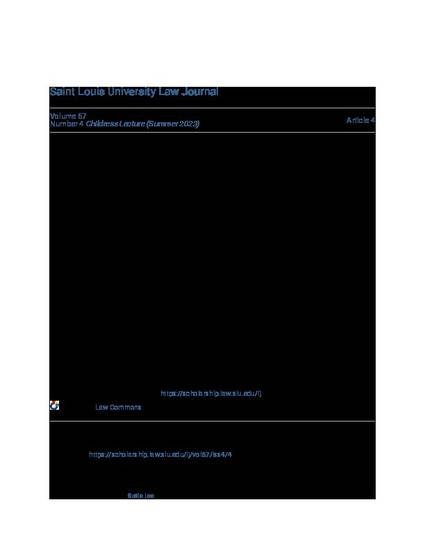
Article
Certiorari in the Roberts Court
St. Louis University Law Journal
(2023)
Abstract
Certiorari—the process by which the Supreme Court sets its docket—is a mystery. The Supreme Court’s rules explain that it may hear any sufficiently “important” case—a standard that seems hopelessly vague. In previous work, I tried to bring some coherence to this standard by way of a text and data analysis of thousands of Supreme Court opinions.
Here, I expand that prior work to include the Supreme Court’s 2019, 2020, and 2021 Terms. This update is revealing. For one, it uncovers new certiorari priorities in the Roberts Court, such as property-rights cases. This updated study also confirms the Roberts Court’s historically unparalleled interest in using its docket discretion to select cases for the purpose of revisiting, and perhaps over-ruling, precedent.
I present and consider these updated results against the backdrop of Stephen I. Vladeck’s Childress Memorial Lecture (to which this symposium essay responds). The Lecture reminds us to look beyond the Supreme Court’s merits decisions to the Court’s broader context—say, its shadow docket, which includes certiorari decisions. Doing so can both yield important insights regarding the Court’s own priorities and help organize the responses of the political branches.
Keywords
- certiorari,
- Roberts Courts,
- important cases,
- Supreme Court Rule 10,
- overrule,
- precedent,
- property-rights,
- damages
Disciplines
Publication Date
June, 2023
Citation Information
67 St. Louis University Law Journal 587 (2023)
